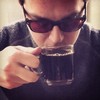From left to right, Deen (the human), her likeness in Paula Deen's Recipe Quest, and Jerrod Maruyama original illustration. Image: Jerrod Maruyama
Paula Deen's new mobile game is bad, but it did lead me to a salad recipe that was pretty good, so it wasn't a total loss. However, I'll probably never make Aunt Peggy's Zesty Cucumber Salad again if it turns out Paula Deen's Recipe Quest used Jerrod Maruyama's art without his permission.As you can see in the image above, the cartoon version of Deen in the game looks very much like Maruyama's caricature original work.Maruyama, a freelance artist, told me he first created the caricature in 2012, shortly after Deen announced she had type 2 diabetes, which is why she's holding hands with a tub of "I Do Believe This Ain't Butter Ya'll," while the abandoned sugar and butter look on longingly."I'm actually a fan of Paula Deen, it was just a fun exercise I do of creating caricatures of celebrities and things like that," Maruyama said (and keep in mind this is before the lawsuit that accused Deen of racial discrimination). "She has a very animated personality and face so it just lent itself well to a character."Maruyama contacted Dream Forge Entertainment but hasn't heard back. We've reached out to Dream Forge and the public relations firm handling the game and haven't heard back either.This type of thing happens to Maruyama all the time. He posts his illustrations online, people see it, and sometimes, someone will take his work, print on a T-shirt or mug, and sell it through a site like Etsy or Redbubble. He said that a polite email usually takes care of the problem, and in the cases when his work was originally created for a client like Disney, a letter from Mickey Mouse's lawyers does the trick.Copying other people's work is an all-too-common problem on the mobile app stores. If Flappy Bird, for example, becomes a hit, other developer come out of the woodwork with similar games that use similar icons to try and ride its coattails by confusing customers, which is just the kind of thing copyrights are meant to prevent. The problem is so bad that there's a Tumblr dedicated to tracking games that blatantly copy other games, and in some cases the clones become more popular than the original.You can't copyright the collection of design decisions that define how a game plays, which in some cases leave a game developer who was blatantly ripped off without recourse, but there's no confusion when someone steals titles (which is how Candy Crush Saga managed to trademark the word "candy") or art assets like in Maruyama's case.Usually, developers file a complaint with Apple or Google, which reviews the case and removes the offending game from the app store.For now, Maruyama just wants to be acknowledged. "The main thing to me is the idea of it, that these people came in and took something and passed it off as their own. It's less about that they're going to make a lot of money on this app."
Advertisement
He posted the image to his Flickr page, and someone who works for Deen obviously saw it because it was posted to her verified Pinterest page shortly after, he said."I think it's hard to look at the two caricatures side by side and not say that one is derived from the other," Maruyama said. "They have gone through some stuff to make some changes, but not enough. To me it signifies very clearly that they used this as more than just an inspiration, but as a starting point.""The artist would have copyright protection in his drawing, and to the extent this drawing was actually copied by the mobile game company then the artist would have a claim for copyright infringement," the University of Akron School of Law professor Ryan Vacca said in response to Maruyama's situation. However, Vacca added that Maruyama can't prevent others from independently creating their own caricatures of Deen. So if the game's developer, Dream Forge Entertainment, created the caricature itself or paid someone else to, there would be no infringement—no matter how similar it looks to the original drawing. It would be legal, just not very nice."I think it's hard to look at the two caricatures side by side and not say that one is derived from the other."
Advertisement
